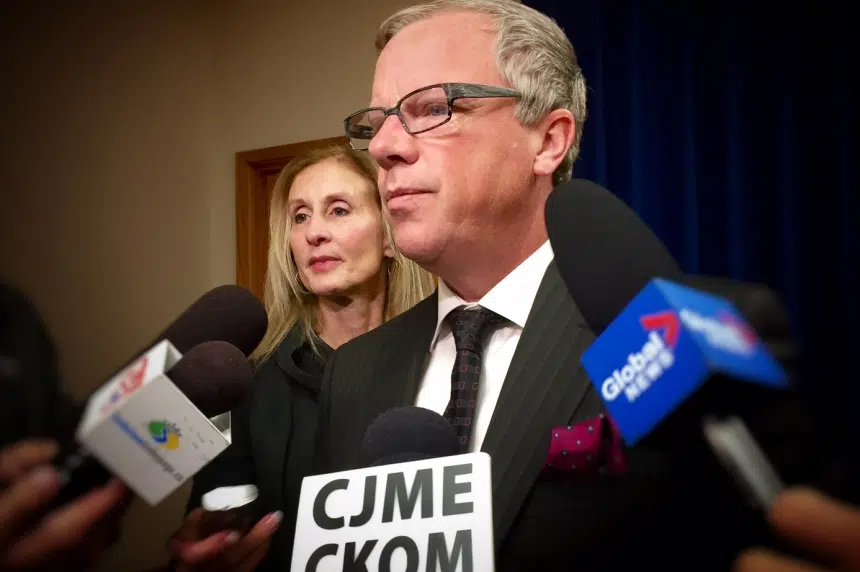Premier Brad Wall is continuing to speak out against a carbon tax announced by Prime Minister Justin Trudeau.
In remarks to the House of Commons last week, Trudeau said provinces have to come up with plans to impose a minimum $10-a-tonne price on carbon by 2018, rising to $50-a-tonne by 2022. He said Ottawa would move to impose a tax on provinces that didn’t bring in their own programs.
Trudeau stressed any money collected via such a measure would remain in the province, and could be applied to new programs or tax cuts as the provinces saw fit.
At a media event in Saskatoon Tuesday, Wall said he didn’t find the promise of revenue-neutrality particularly comforting.
“Those people who lose their jobs won’t really care much about some income tax reduction that comes because of revenue neutrality, or because we can now take the carbon tax revenue and now give it back as some form of income tax (reduction),” he said.
Wall said there is already legislation on the province’s books that could impose a levy on high carbon emitters. He said he doesn’t think the timing is right to use it.
“The energy sector in this province is reeling. We’ve seen layoffs in mining … we’ve seen thousands of oil workers lose their jobs,” he said.
Wall noted farm groups have also come out against the tax over fears it will drive up the price of fuel and fertilizer.
The premier said the province’s major industries of mining, energy and agriculture rely on export markets.
As such, he said they can’t pass extra costs from a carbon tax on to their customers as it would make them unable to compete against jurisdictions with no carbon tax. He used the potash market as an example, where Saskatchewan companies traditionally compete with Eastern European firms for market share.
“Do you think the Russians or the Belarusians are ever going to have a $50 carbon tax? They won’t,” he said.
Wall also questioned whether a carbon tax would be effective in reducing emissions, noting that total emissions out of British Columbia have still increased despite that province imposing a carbon tax in 2010.
The premier asserted he’d rather see efforts focused on technological solutions such as the $1.5 billion carbon capture project at the Boundary Dam. He also pointed to his government’s pledge to have the province getting half its electricity from renewable sources by 2030.
Wall said he’s had the provincial justice department looking at possible court challenges to the tax for some time now. He said that work started when rumours first began to swirl over the summer that Ottawa might unilaterally impose a tax.
He said those efforts have mainly focused on whether it would be constitutional for Ottawa to impose a tax on the SaskPower and SaskEnergy.
“One level of government can’t tax another level of government. Well SaskPower is a government organization, it’s a Crown. So is SaskEnergy,” he said.
With many provinces already onside with Trudeau’s proposal, Wall said his government is also looking into whether Ottawa can pick and choose which provinces it taxes.
“Let’s say we’re one of maybe two provinces that aren’t signing on. How do they develop and impose a brand new tax on one or two provinces, and how is that constitutional?” he said.
Wall vowed to continue pushing back against the tax, regardless of what other provinces choose to do.
“I’m going to continue to fight this fight. I’m not sure how much company we’ll have and I don’t really care. What’s at stake here is jobs for Saskatchewan people and industries that are important to our future,” he said.











